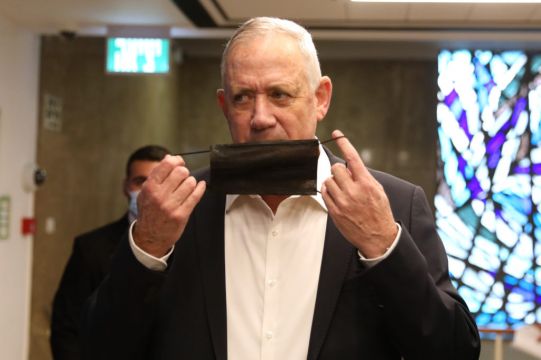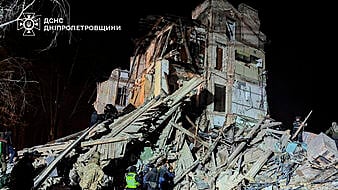Israel and Morocco signed a landmark agreement on Wednesday that lays the foundation for security cooperation, intelligence sharing, and future arms sales.
The memorandum of understanding is the centrepiece of a visit this week by the Israeli defence minister, Benny Gantz, to Morocco, which established formal relations with Israel last year as part of the US-brokered Abraham Accords.
Gantz’s trip is the first official visit by an Israeli defence minister to one of the Arab states that normalised ties under the accords.
In a statement, Gantz said that the agreement was “very significant and will allow us to exchange ideas, enter joint projects and enable Israeli military exports here”.
The agreement was signed in a boardroom at the Moroccan defence ministry, with military attaches and two Israeli parliament members in attendance.
The Israeli defence minister also met with the Moroccan military chief of staff, and was greeted by a guard of soldiers clad in red tunics, blue slacks and gleaming gold epaulets.
Ahead of his meeting with Loudiyi, Gantz paid his respects at the tomb of Mohamed V, the grandfather of the reigning monarch.
Morocco, the United Arab Emirates, Bahrain and Sudan signed agreements to normalise relations with Israel in 2020 as part of the diplomatic pacts brokered by the Trump administration known as the Abraham Accords.
Israel and Morocco enjoyed low-level diplomatic relations in the 1990s, but Morocco severed them after a Palestinian uprising erupted in 2000.
Despite that, the two states have maintained informal relations. Nearly half a million Israelis claim Moroccan heritage — more than 200,000 immigrated to Israel after the founding of the state in 1948 — and thousands visit the country each year.
Morocco is still home to a small Jewish community, and Rabat has one remaining synagogue, where Gantz will visit at the close of his two-day trip.
In exchange for Morocco normalicing relations with Israel, the Trump administration promised in December 2020 to recognise Moroccan sovereignty over Western Sahara, a disputed north African territory.
The announcement upset decades of US policy and international consensus that Western Sahara’s status should be settled by a UN referendum.
Since then, the Biden administration has cautiously walked back that recognition.
The Abraham Accords broke a longstanding consensus among Arab states that normalisation with Israel only take place as part of a resolution of the Israeli-Palestinian conflict. Because of that, the Palestinians view the agreements as a betrayal that eroded their leverage with Israel.







